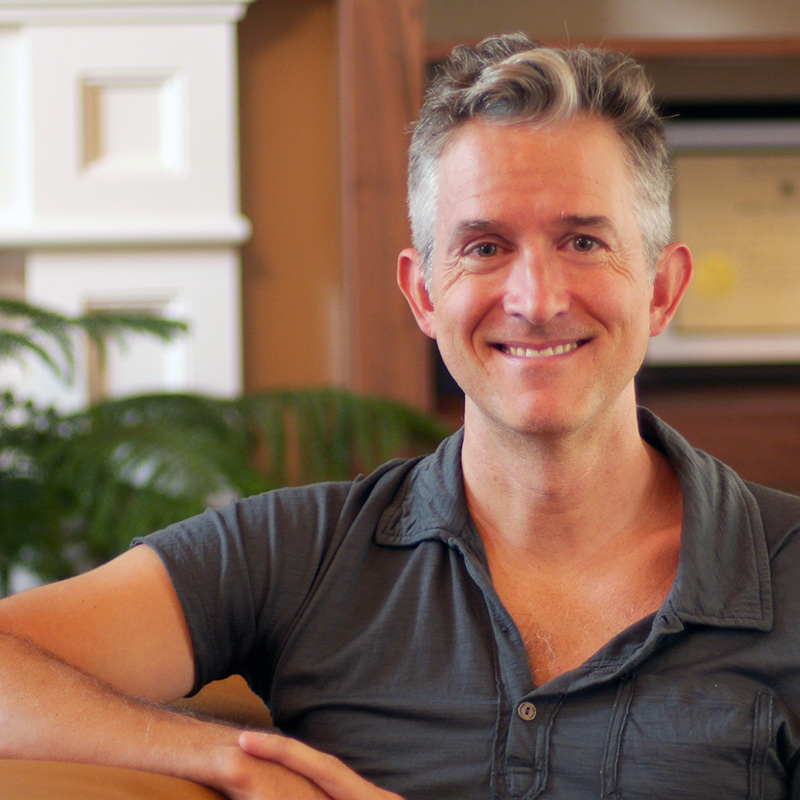This week I interview Dr. Will Van Derveer, a groundbreaking physician who is rewriting our understanding of mental health and wellbeing.
Dr. Will is the founder of Integrative Psychiatry Centers where he and his team use the most innovative treatments, including ketamine, to identify and address the root causes of mental illness.
Dr. Will also runs the integrative Integrative Psychiatry Institute whose goal is to create and sustain a revolution in mental health and combat our mental health crisis by training physicians in an integrative approach. The Institute is currently training hundreds of psychiatrists in integrative psychiatry, a new more holistic model of mental health and well-being.
Will has published research on MDMA-Assisted Psychotherapy for PTSD and written book chapters on the field of ketamine assisted psychotherapy and other clinical applications of psychedelic compounds. He is one of our nation’s most respected ketamine physicians and in addition to traditional medical training, he is also a meditation instructor and is trained in shamanism, EMDR, somatic experiencing, internal family systems, cognitive behavioral therapy and hypnosis.
In this conversation, we trace Will’s journey through traditional psychiatry training to his disillusionment with conventional pharmacological interventions, through his own odyssey and eventual discovery of psychedelics (MDMA and ketamine) as treatment modalities for trauma and depression. We discuss the results he’s seeing with his patients and his current efforts to redefine mental health and psychiatry training in the US and around the world.
—
This episode is brought to you by The Trip Report – a wonderful online newsletter and blog by Zach Haigney about the latest and most exciting psychedelic news and happenings. If you want to be in the know about the psychedelic renaissance, check it out.
This episode is also brought to you by Fulcrum Venture Accelerator, the fundraising accelerator for mission-driven entrepreneurs. Every 3 months we scour the globe for the most impressive entrepreneurs building impactful companies, and we take them through a 3-month accelerator program focused 100% around helping them close seed financing. Our process has already been used to close more than 20 million dollars in seed capital and we’re just getting started. If you or someone you know is creating something impactful and is raising seed capital please visit our website to download free resources and get free pitch feedback.
Show Notes
05:53 Will speaks about how he began to take interest in integrative psychiatry and psychotherapy
07:52 Will asks “ are any of these things touched on in normal quote-unquote Psychiatry training?”.
07:58 Normal Psychiatry training in the late 90s “when I was there it was really about the DSM, labeling people with these conditions based on symptom recognition. It’s not really looking for a root cause – why is this person having a problem in the first place”?
09:21 “I was able to get people where they were functional but they weren’t really thriving”
10:27 Will speaks about the time when he ran into a former patient and how he felt hearing about his gluten intolerance that Will had overlooked.
11:54 “It was really helpful/humbling as a practitioner to have somebody go out and get the answer and then come back and teach you what you didn’t test them for”.
13:09 “If I’m a doctor and most of my people are not getting well, then what’s wrong with the the healing that I’m providing”
14:13 The annuity model of healthcare – Will and Will discuss
14:49 “I’ve been listening a lot to Zach Bush who has this amazing perspectives on the role of healthy soil for healthy humans”
16:00 The crisis of COVID seems to be partly a wake up for people.
16:22 “Time will tell whether the stress levels are too high for this to be a growth experience for us as a culture or is it going to be more of a disintegration into more chaos?”
17:04 Range of tolerability -a growth range where you are not going to grow if you’re overstressed.
17:50 “The growth opportunity for me is to double down on self-care interpersonal care and really listen and try to be a part of the solution”
18:34 “There are maladaptive levels of stress and there is the concept of eustress, which is a stress within this range of tolerability where you become more resilient from getting stressed”.
21:43 “The desire to reimagine your life really drains away if you’re not in some pain”
22:51 Psychiatric medication never cures the problem, it just suppresses the problem.
23:36 Will and Will discuss more how pharmacological interventions can make people apathetic and produce “apathetic annuities” – Chilling
24:07 “This concept of embracing challenge and empowering ourselves and moving forward with our lives is not so much of a cultural theme for us”.
25:00 “We’re teaching people to be good factory workers, which is really unfortunate because it takes a lot of effort for people to undo that enculturation”
25:46 “I’ve had a seven or eight year journey of doing every kind of training and every kind of rabbit hole that I could find to go down. Some of it was functional medicine and some of it was psychotherapy. Some of it was shamanism, diving into spirituality ways that can help people move.”
26:24 “I’m deeply grateful to my patients for being willing to be guinea pigs as I tried different things out”
27:38 “It’s an aversive thing for a physician to say “I don’t know”, but it turns out to be one of the most powerful and healing things to say sometimes when it’s true. “We’re going to figure this out together” feels a lot more honest to me then “Oh, I’m the doctor. I’ve got the answers.”
30:25 Will speaks about how he started working with ketamine
31:40 “I was one of those people who really had a very negative perspective about chemicals that were made in a lab. And then I looked at the study that Michael Mithoefer and Rick Doblin had published in 2011 on MDMA for PTSD and they reported 83% of the folks didn’t have PTSD anymore at 12 month follow up.”
35:04 Will tells a funny story about the time when he was a part of a research study on MDMA therapy
37:50 “These compounds that people use in a psychotherapy session can have such a different impact in the psychotherapy context vs. the non psychotherapy context.”
42:18 Will explains the protocols they use in working with ketamine
43:32 “Ketamine is more of a catalyst to get the ball rolling in the right direction”
47:03. “We see about 80% of the people who get ketamine, so 4 out of 5 people who do this protocol for chronic depression will have life-changing results in terms of the drop in their symptoms of depression in three or four weeks.”
50:50 A little bit about the attachment theory and the importance of secure functioning in relationships (and Stan Tatkin)
51:59 Will speaks about how he got the idea to start the Integrative Psychiatry Centers and the Integrative Psychiatry Institute
54:10 “Our goal is to train 10,000 people in the next 10 years”
55:15 “We want to create other centers in other parts of the country so that more people have access to this kind of mental health care”
56:44 Will speaks about integrative psychiatry
57:09 “It’s funny that psychiatry never really defined what mental health is. The definition of mental health is the absence of symptoms but would you say if you’re asymptomatic that you’re well?”
58:28 How do psychedelics fit into the bigger picture of mental health – leadership maturity and restraint
59:41 “We shouldn’t have the perspective that every problem we encounter in our mental health can be fixed with psychedelics, that’s really dangerous perspective”
1:01:28 Will Sacks – Stan Grof when asked what advice he would give to everyone who’s pushing forward the current psychedelic renaissance “Don’t screw it up”
1:01:46 “There are too many lives at stake to screw this up”
1:02:13 What we need to do to get this to all the people who need it
1:05:46 The cost of a ketamine session
1:09:40 How to bring tools like those to communities of color, where sometimes income levels are much lower than white communities
1:12:59 What is health?
1:14:50 Looking forward “Learning how to not be the smartest person in the group and learning how to build something bigger than what I could ever do by myself and relishing that and seeing the kind of diversity of gifts and talents that people bring to the collaboration”



